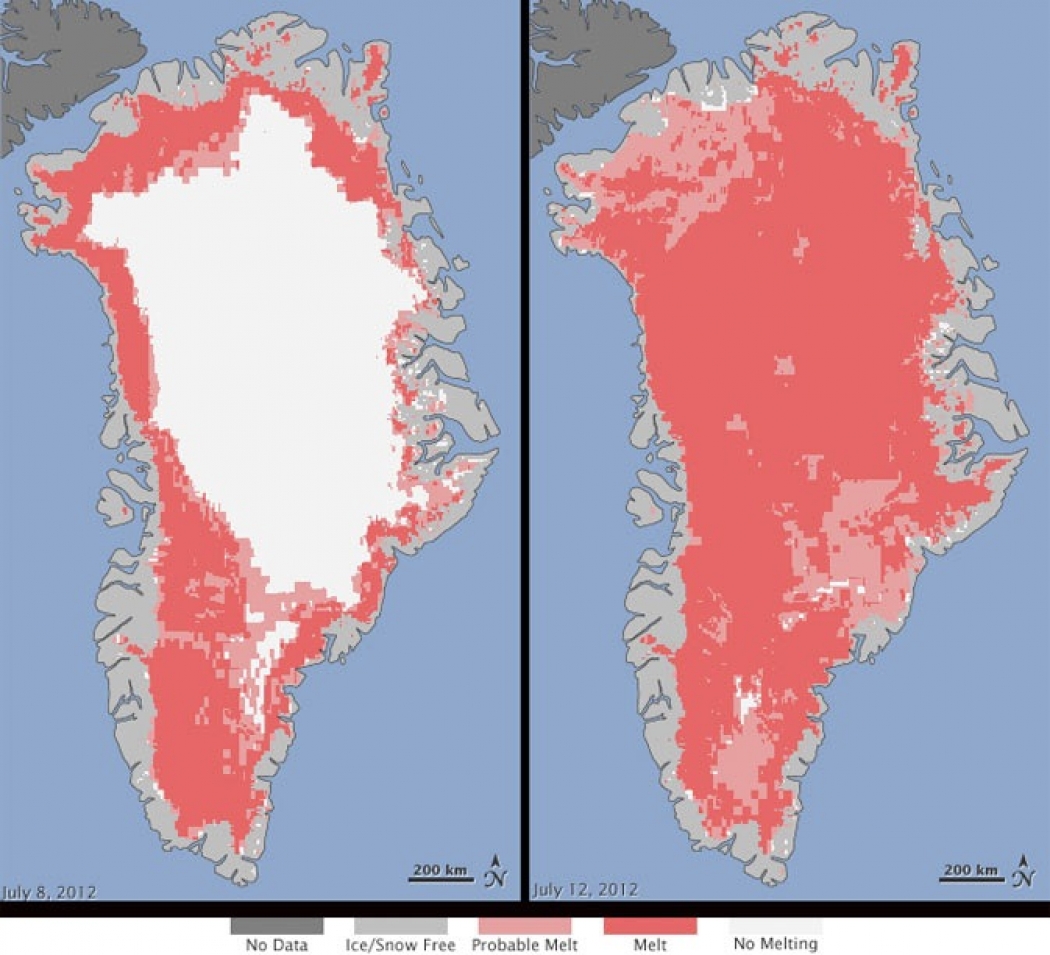During this year alone it lost enough ice to. The vast melting of Greenlands ice sheet caused by unusually high temperatures in 2012 had a lasting impact on its ability to absorb and store future meltwater new research showed on Tuesday.
 Greenland Ice Sheet Melt Could Occur Yearly By 2100 Climate Central
Greenland Ice Sheet Melt Could Occur Yearly By 2100 Climate Central
Authors of the research said it was evidence of how one-off or rare weather events could have a lasting impact on Earths frozen spaces and a knock-on.
Greenland ice melt. If the ice melts faster then sea level will rise faster. Satellite data from 2021 showed that in the course of just a few July days as much as 97 percent of the ice sheet surface had thawed. This is a roaring glacial melt under the bridge to Kangerlussiauq Greenland where its 22C today and Danish officials say 12 billions tons of ice melted in 24 hours yesterday.
The Greenland Ice Sheet has experienced five record-breaking melt seasons since 2000 most recently in 2019. On average in the summer about half of the surface of Greenlands ice sheet naturally melts. Melting ice is the main cause of sea level rise and Greenland contributes the most meltwater to the ocean.
It used to be rare to get temperatures above 0 degrees on the ice sheet but no longer Bevis said. All it takes to melt Greenlands ice sheet is a surface temperature of 1 C and sunlight. Sea levels are projected to rise by more than 3 feet by the end of the.
Ice melting in Greenland contributes more than a millimeter rise to sea level every year and thats likely to get worse. Near the coast some of the melt water is retained by the ice sheet and the rest is lost to the ocean. Greenlands ice is starting to melt faster than at any time in the past 12000 years research has shown which will raise sea levels and could have a marked impact on ocean currents.
If all the ice that is on Greenland were to melt or calve into the ocean global sea level would rise 72 meters 21 feet Currently melting Greenland ice increases global sea level by about 05 millimeters each year. The Greenland Ice Sheet has experienced five record-breaking melt seasons since 2000 most recently in 2019. The vast melting of Greenlands ice sheet caused by unusually high temperatures in 2012 had a lasting impact on its ability to absorb and store future meltwater new research showed Tuesday.
Ad SemiAuto PolymerPlastics Melt Flow Testers Exceed Requirements ASTM ISO More. The record melt of Greenlands ice sheet caused by unusually high temperatures was first detected in 2012 as scientists accumulated the melting maps and data from three different satellite sensors including the Oceansatâ 2 scatterometer the Moderateâ resolution Imaging Spectroradiometer and the Special Sensor Microwave Imager. At high elevations most of that melt water quickly refreezes in place.
Ad SemiAuto PolymerPlastics Melt Flow Testers Exceed Requirements ASTM ISO More. Greenlands massive ice sheet may have melted by a record amount this year scientists have warned. Satellite data from 2021 showed that in the course of just a few July days as much as 97 percent of the ice sheet surface had thawed.
With millions of people threatened by the. Over the last two decades Greenlands ice sheet has melted at a rate of roughly 6100 billion tons per century a rate approached only during a.
